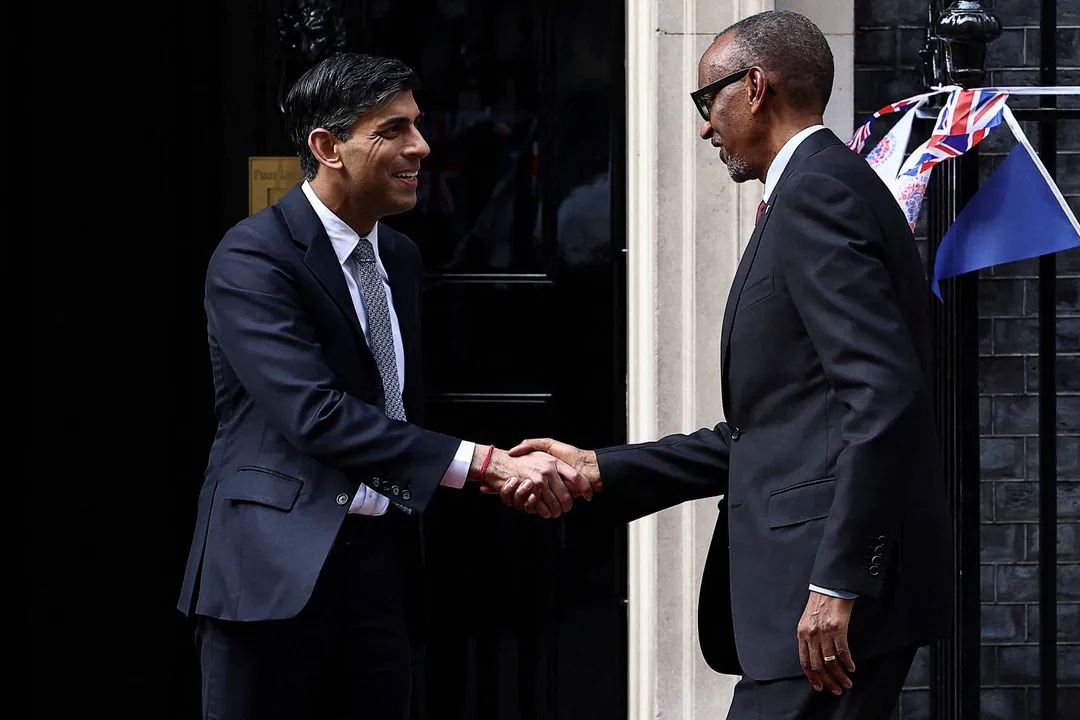Britain’s Supreme Court will deliver its ruling on Wednesday on whether the government can go ahead with its plan to deport asylum seekers to Rwanda, a decision which could have far-reaching ramifications for Prime Minister Rishi Sunak.

At hearings in October, government lawyers argued that the top court should overturn a ruling that the scheme to send thousands of asylum seekers more than 4,000 miles (6,400 km) to East Africa was unlawful as Rwanda was not a safe third country.
Sunak hopes the Rwanda scheme will help stop the flow of migrants across the Channel from Europe in small boats, and so deliver one of his key policy pledges and energise his ailing premiership ahead of an election expected next year.
With his Conservative Party languishing about 20 points behind in the polls and immigration a major concern for some voters, victory in the Supreme Court would be seized on by the government as a sign it was getting to grips with the issue. Defeat would be viewed as another failure.
The court’s decision could also magnify calls from some Conservative lawmakers for Britain to pull out of the European Convention of Human Rights (ECHR), especially after Sunak upset some on the right of his party by sacking Suella Braverman, a vocal critic of the treaty, as the minister in charge of the issue on Monday.
The government has suffered a number of major defeats in the Supreme Court in recent years, most notably when it found former Prime Minister Boris Johnson had acted illegally when he suspended parliament in 2019.
The five senior judges, including the court’s president Robert Reed, will deliver their decision at about 1000 GMT on Wednesday.
PRESSING NEED
During three days of hearings, the judges heard from government lawyers who said there was a “serious and pressing need” for the Rwanda scheme.
They argued Rwanda was “less attractive” to those who might come to Britain, and so the scheme would be a deterrent, while the deal struck with the East African country would ensure the human rights of migrants deported there would be protected.
“There is a strong public interest in deterring illegal, dangerous and unnecessary journeys from safe third countries to the UK, whilst ensuring that those who continue to make such journeys are removed to a safe third country,” they said.
Rwanda has said it would offer migrants sent from Britain the opportunity to build a new, safe life.
But lawyers representing asylum seekers from Syria, Iraq, Iran, Vietnam and Sudan who face being sent to Rwanda argued it was unlawful to send people there because it would breach the ECHR, and put them at risk of being returned to their home countries despite having valid asylum claims.





